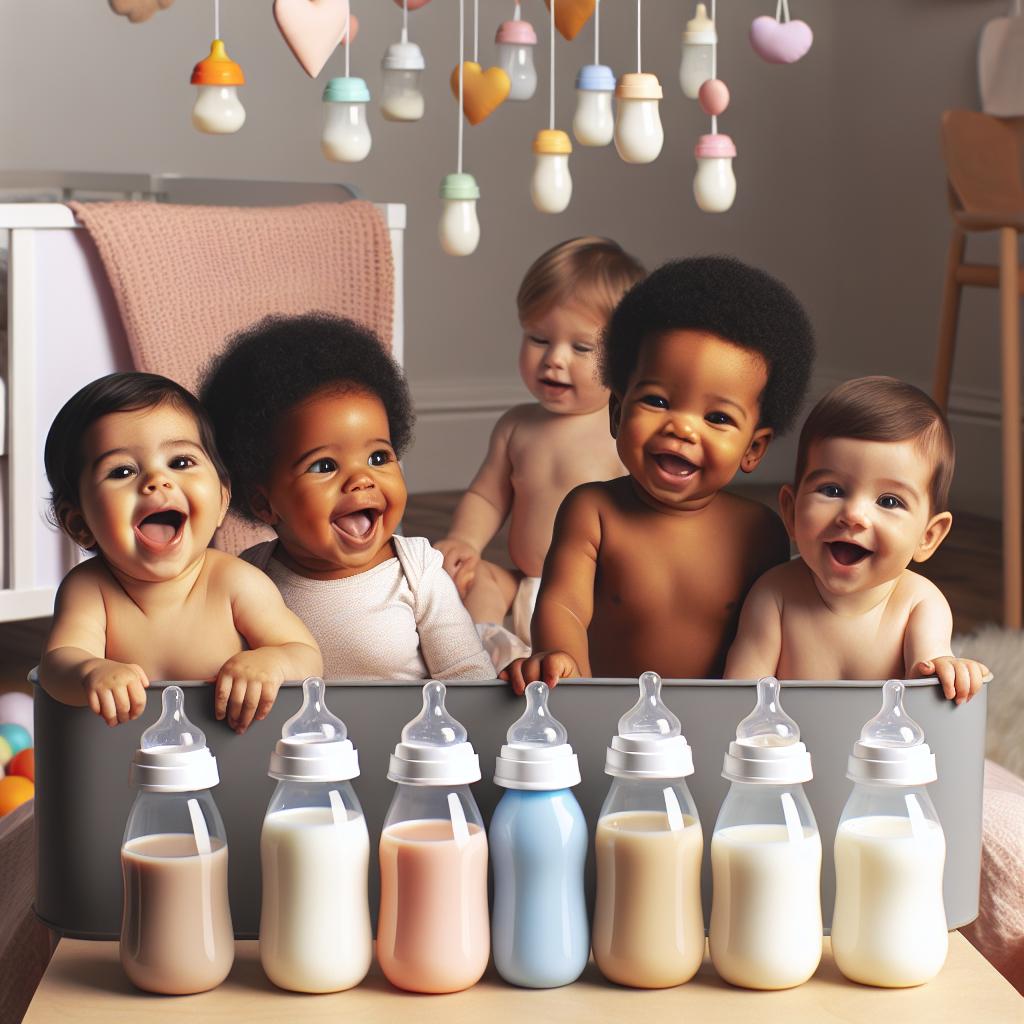Understanding the Basics
As every parent knows, the journey of parenthood comes with great joy, but also with endless questions and concerns. One of the critical decisions you will make revolves around feeding your baby. We will explore why choosing the best baby bottles is essential for your baby’s health and well-being.
Necessity of Baby Bottles
Whether you’re breastfeeding, formula feeding, or combining both, baby bottles are necessary equipment in your parenting toolkit. The reasons include:
- Convenience for working parents or those on a busy schedule
- Allows other family members to participate in feeding
- Enables you to monitor the amount of milk your baby consumes
- Aids in transitioning from breastfeeding to solid food
Importance of Choosing the Best Baby Bottles
Not all baby bottles are created equal. The best baby bottles are more than just containers for milk. They are specifically designed to mimic the natural nursing experience for your baby. This is called biomimetic feeding. The design, material, and functionality of the bottle can significantly affect your baby’s feeding experience.
Criteria for the Best Baby Bottles
Here are key factors to consider when choosing the best baby bottles:
- Nipple Design: Bottles with a nipple design that mimics the natural shape of a mother’s breast makes it easier for the baby to suckle, promoting a more seamless transition between breast and bottle feeding.
- Material: Glass, silicone, and BPA-free plastic bottles are popular choices. Each material has its pros and cons, hence, choose according to your baby’s needs and lifestyle.
- Easy to Clean: Bottles with fewer parts are easier to clean and assemble. Baby bottles should always be kept clean to prevent the buildup of bacteria.
- Anti-colic Features: Some bottles have a venting system to reduce the amount of air your baby swallows, which can help lessen gas and colic symptoms.
- Size and Shape: Smaller bottles are suitable for newborns, while larger ones accommodate a growing baby’s appetite. The shape of the bottle should be comfortable for both you and your baby to hold.
Biomimetic Feeding
Biomimetic feeding is a revolutionary feeding method that aims to replicate the physiological breastfeeding process as closely as possible. It respects your baby’s natural suckling rhythm and encourages active participation, promoting a better bond between you and your baby.
The Road to Bottle Feeding Success
Bottle feeding your baby doesn’t have to be a stressful experience. With the right knowledge, tools, and parenting feeding tips, you can navigate this new chapter with ease. Remember that every baby is unique; what worked for one baby might not work for yours. Try different bottles and nipples until you find the one your baby prefers.
Further Reading
For more personal experiences and insights, check out these great reads:
- Why Choosing to Formula Feed was the Best Decision I Made as a New Mom
- Baby Gear, Tech and the Right Amount of Help for New Parents
- I Send My Child to Daycare and Couldn’t be Happier
- What is a Secure Attachment? And Why Doesn’t Attachment Parenting Get You There?
Understanding Bottle Feeding Challenges
Parents often encounter challenges when introducing bottle feeding to their babies. From baby’s resistance to the bottle, difficulty finding the right bottle, to dealing with colic and gas pains – the list can be exhausting. However, these issues are typical and can be addressed with patience and effective strategies.
Understanding the root cause of these challenges can guide you in finding the right solution. For instance, if your baby is refusing the bottle, switching to a nipple design that closely mimics breastfeeding might help (read more on breastfeeding and weaning on Reddit).
Creating Feeding Schedule
Establishing a feeding schedule can help regulate your baby’s hunger cues and sleep cycle. While every baby is different, in the first few months, babies generally need to feed every 2-3 hours. As they grow and their stomachs can hold more milk, the frequency decreases.
Creating a schedule helps parents to anticipate feeding times, allowing for necessary preparations. It can also help in creating a bedtime routine, leading to improved sleep patterns for both the baby and the parents.
However, it is important to note that a schedule should not override your baby’s needs. Always look out for signs of hunger like restlessness, sucking hands, or crying, and be flexible to adjust the schedule when needed.
Support Beyond Bottle Feeding
Remember, feeding your baby is more than just providing nutrition. It is an intimate activity that strengthens the bond between parents and the baby. Whether you are breastfeeding, bottle feeding, or mixed feeding, support and understanding from family, friends, and healthcare professionals can make the entire process better.
For instance, online forums like Reddit have specific communities for parenting where experiences are shared, and advice is given. One helpful post discusses the transition period between different stages of a baby’s growth and how that affects feeding (click here to read more on Reddit).
Additional Resources
It may seem overwhelming initially, but remember that you are not alone! Millions of parents worldwide have gone through similar experiences. There are many resources out there that can provide additional evidence-based knowledge and reassurances.
Dr. Jay Gordon’s blog delves into sleep and feeding patterns, offering insights into adjusting to your baby’s feed and sleep rhythm (read more).
In addition, They Say Parenting offers helpful tools to deal with changes as your baby grows.
You are on a remarkable journey, and the right bottle can make this adventure a little a easier for you and your baby. As you navigate through the maze of baby bottles, remember that the best choice is the one that works best for you and your child.

